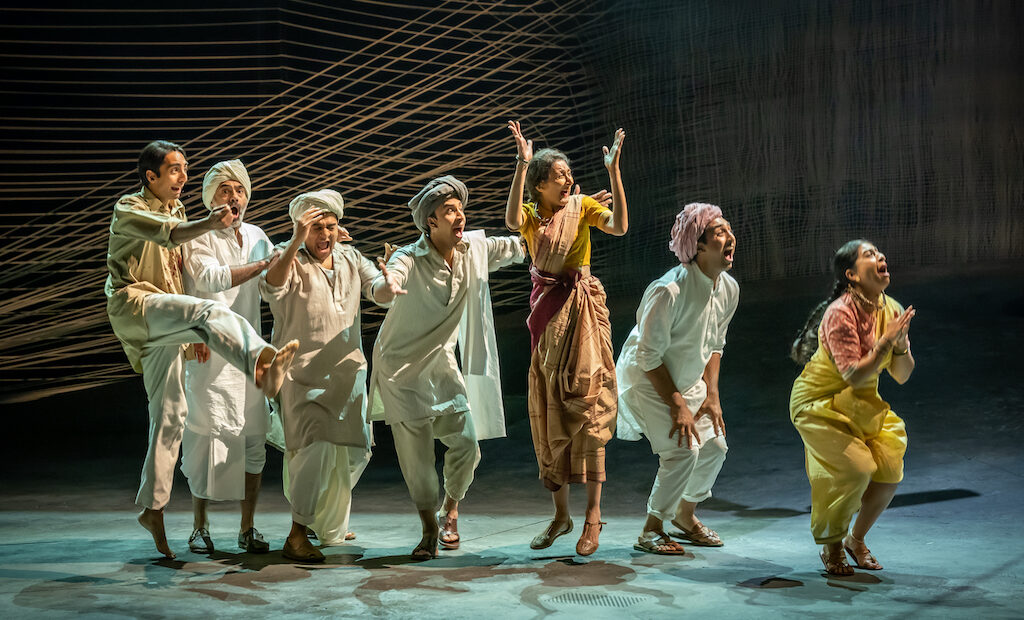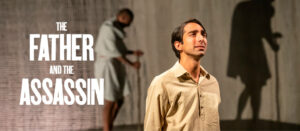The Father and the Assassin at the National Theatre

Is there ever a situation where murder can be condoned? This is the question the audience is encouraged to ask themselves in Anupama Chandrasekhar’s new play The Father and the Assassin. Directed by Indhu Rubasingham, the production follows the interwoven lives of Nathuram Godse, the man responsible for the murder of Gandhi, and Gandhi himself.
The play begins with an almost immediate breaking of the fourth wall as the audience is introduced to the supposed antagonist, Nathuram. Usually, speaking directly to the audience can go one of two ways – luckily, in this case the engaging portrayal of Nathuram, played by Shubham Saraf, means that the breaking of the fourth wall helps the audience to immerse themselves fully from the very beginning. Saraf’s whimsical nature and overall charisma make it almost difficult to find any reason to hate the man who killed “the father of the nation”, adding to the overarching theme of ambiguity in the play. The audience is asked to “please turn off your British scepticism”, as a reminder of the different cultures being portrayed on the stage.
A refreshing addition to the play is the casting of Mithun, played by Nadeem Islam. The use of sign language is sadly something not often seen in theatre, but this uniquely powerful performance by Nadeem Islam cannot go unmentioned.
Though there is not much known about Godse, Anupama Chandrasekhar successfully weaves together fact and fiction to create a plausible case for what could have been, without overwhelming the audience with the vast history of India. This is achieved somewhat through the caricature of Gandhi, played by Paul Bazely, providing comic relief to the otherwise harrowing scenes in the play. It’s highlighted in the second act, where Vimala (played by Dinita Gohil) acts as a counter-voice to Godse, bringing to light the possible indoctrination he may have experienced. Even for those in the audience who are not acquainted with the political history of India, the cast and crew do a magnificent job of telling the story and giving it the justice it deserves.
Here, Godse becomes a loveable, though misguided character – one whose motives were catalysed by the real issues faced in India under British colonialism, as well as the religious disparity within the country. Of course, the death of Mohandas Gandhi was deplorable, but here the audience is encouraged to question who the real villain in the story is: Nathuram Godse or colonial Britain.
Natallia Pearmain
The Father and the Assassin was at the National Theatre. For further information visit the theatre’s website here.


























Facebook
Twitter
Instagram
YouTube
RSS